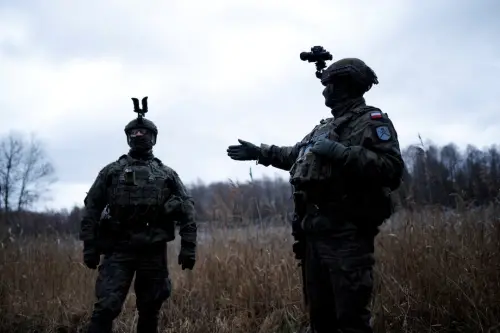Poland is set to begin the process of resuming the production of anti-personnel mines, according to its defense minister. This decision follows Warsaw's recent collaboration with the Baltic states to announce a ban on their use.
By withdrawing from the 1997 Ottawa Convention, which has been ratified or acceded to by more than 160 nations, Poland and the three Baltic republics will be able to stockpile and use anti-personnel mines once again, responding to what they perceive as increasing threats.
Wladyslaw Kosiniak-Kamysz expressed during a press conference that Poland and its neighbors should not be constrained by conventions that hinder their deterrence and defense policies. He emphasized the need for politicians to remove restrictions placed on the military, highlighting the collaborative efforts of Poland and its Baltic allies.
Kosiniak-Kamysz mentioned that it would take several months to pass legislation for the withdrawal from the Ottawa Convention, followed by an additional six months for implementation at the United Nations. He added that enabling the production of these mines would be a task for the arms industry and noted there was a willingness to take on this challenge.
Polish arms manufacturer Belma indicated that it currently produces anti-tank mines and could adapt its machinery for anti-personnel mine production in a short timeframe.
However, Charles Bechara from the International Campaign to Ban Landmines - Cluster Munition Coalition cautioned that reintroducing anti-personnel mine production could be costly and complex. He noted that even if pursued, it would take years to operationalize, potentially diverting resources from developing more effective defense measures.
Cordula Droege, Chief Legal Officer of the International Committee of the Red Cross, expressed concern that countries are making "rash" decisions, warning about the potential implications for the future. She urged consideration of the broader consequences, questioning whether this shift might lead to the acceptance of other prohibited weapons, such as chemical weapons.
